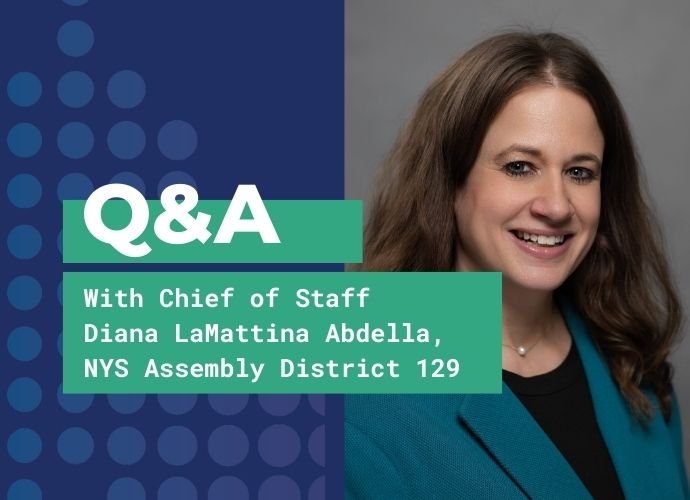BLOG
Institute Intelligence
Insights, case studies, news, and updates from ISLG’s good governance research and action.
Institute Intelligence, February 2026: The Pace of Justice, Q&A with a Syracuse Chief of Staff
A snapshot of the work we’ve done this past month.
“We're here to make it better for our residents and our children.” Q&A with NYS Assembly Chief of Staff Diana LaMattina Abdella
“It's not a glamorous job, and it's not one where you're going to get rich. What we do behind the scenes in legislative offices most days is helping and working and interacting with the community.”
Institute Intelligence, January 2026: Revisiting Discovery Reform, Local Data Answers Crime Questions
A snapshot of the work we’ve done this past month.
While Gone from the Headlines, New York Still Needs to Address Discovery Reform
Amid mixed results to date, policymakers can insist on better implementation of New York’s discovery reform, provide prosecutors with whatever tools they need, and steadfastly avoid sacrificing the due process rights of people facing charges. This joint piece is a collaboration between two of CUNY’s preeminent research organizations to get us there.
New York City Taxpayers Continue to Contribute More to State Revenues than They Receive Back in Services, CUNY and New School Study Finds
“Following a decade of economic growth in New York City and the enactment of high-earner income tax increases in 2021, this report provides an updated and comprehensive picture of the fiscal flow between New York City and New York State.”
How Cities and States can use Vacant Property Taxes to Spur Housing Development
Affordable housing is a priority issue for state and local governments across the country. One unique method these policymakers have to incentivize the creation of more housing is strategic property tax policies that target vacant or underutilized properties.
Institute Intelligence, November 2025: Restorative Justice for NYC’s Youth, The Impact of Paying the Human Service Sector a Living Wage
A snapshot of the work we’ve done this past month.
Expanded Kriegel Fellowship 2025-2026 Cohort Creates Tailored Professional Development for State and Local Government Chiefs of Staff, Senior Office Leaders
Launched this fall, 44 staffers from New York City and State governmental offices will meet with their peers and field experts biweekly to sharpen their knowledge, skills, and networks.
Living Wages for Public Sector Workers is an Investment in a Thriving, Affordable City
Raising wages for human services workers not only is beneficial to those individuals; it is also a strategic policy intervention with far-reaching benefits for communities and the broader economy.
Institute Intelligence, October 2025: Why Civic Engagement Matters, Tracking the Changing Use of Jail After Reform
A snapshot of the work we’ve done this past month, including why civic engagement matters and the changing use of jail after reform
Get Out the Vote in NYC’s General Election
As New York City’s General Election approaches, we’re taking a closer look at the role of local government in NYC and the ways that community-based organizations can increase civic engagement in communities where voter turnout has historically been low.
Institute Intelligence, September 2025: Prosecutorial Data in the Great Lakes, Grassroots Investments Pay Off
A snapshot of the work we’ve done this past month, including prosecutorial data in the Great Lakes and grassroots investments that have paid off.







